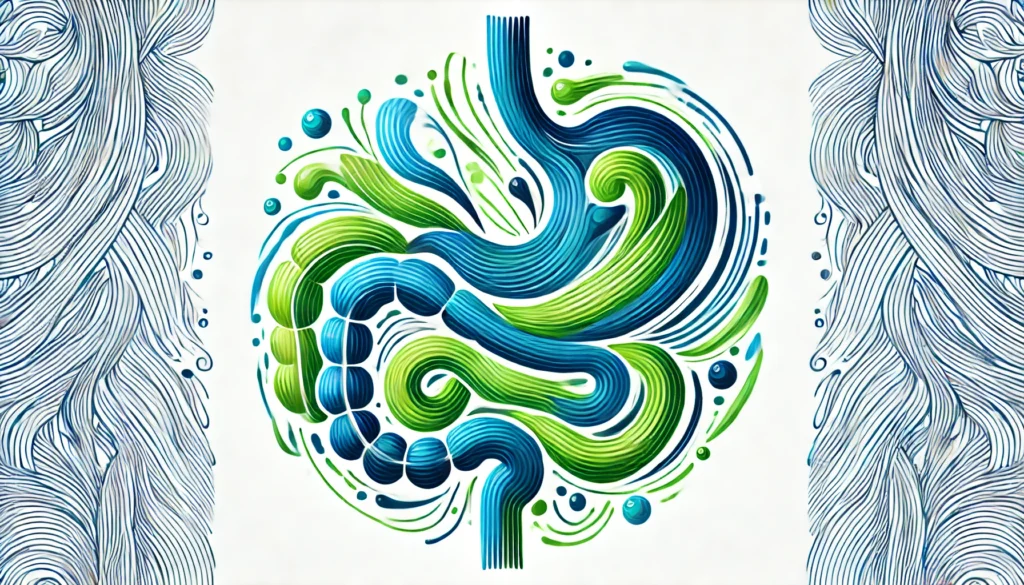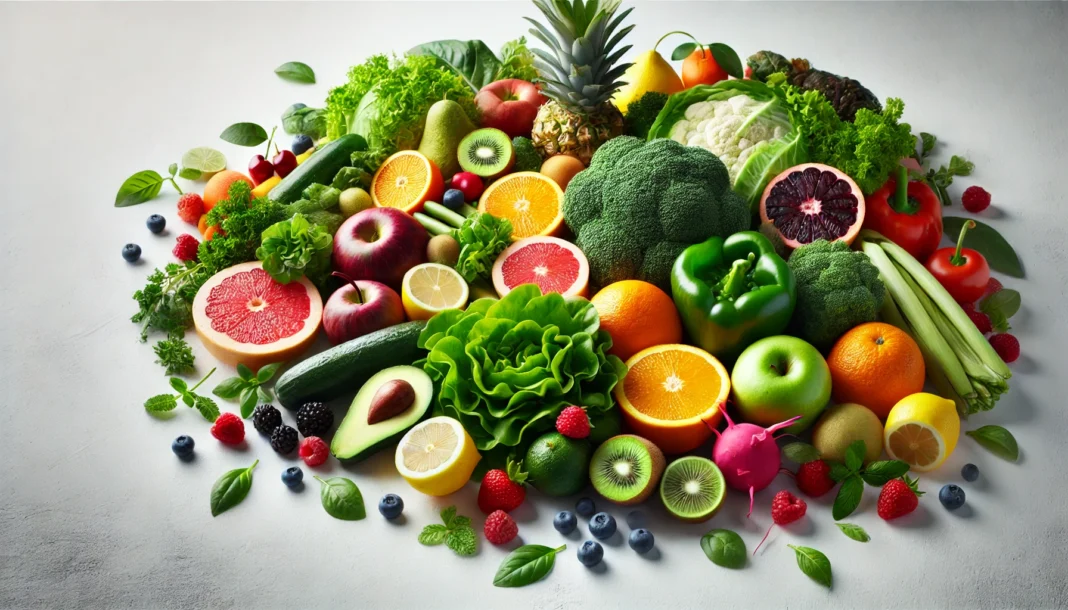Understanding Bowel Cleansing and Detoxification
The human body has an intricate and highly efficient system designed to eliminate waste and toxins. The liver, kidneys, intestines, and colon work in tandem to process and expel harmful substances. However, the idea of actively cleansing the body through external means, such as laxatives, has gained popularity. Many people turn to bowel cleansing laxatives, believing they can expedite detoxification and promote better health. But do laxatives cleanse your body in the way people assume? Understanding the role of laxatives and how they impact the digestive system is key to determining their effectiveness and safety in cleansing and detoxification.
You may also like: Best Detox Supplements for a Healthier Body: Top Picks for Safe and Effective Cleansing
The Role of the Colon in Detoxification
The colon, also known as the large intestine, is a crucial component of the body’s waste elimination system. It absorbs water and electrolytes while forming and expelling stool. The natural movement of the colon ensures that waste products, including toxins, are regularly eliminated. When this process functions efficiently, the body does not require additional interventions to cleanse itself. However, proponents of detoxification argue that the colon accumulates harmful substances over time and that periodic cleansing, such as through bowel cleansing laxatives, can enhance digestive health.
Do Laxatives Cleanse Your System? How They Work
Laxatives come in various forms, including stimulant, osmotic, bulk-forming, and lubricant laxatives. Each type functions differently in the body:
- Stimulant laxatives induce contractions in the intestinal muscles, promoting rapid bowel movements.
- Osmotic laxatives draw water into the colon, softening stool and facilitating easier passage.
- Bulk-forming laxatives increase stool volume, stimulating peristalsis, the natural wave-like muscle contractions of the intestines.
- Lubricant laxatives coat the stool and intestinal walls, reducing friction and aiding movement.
While these mechanisms are effective in alleviating constipation, they do not necessarily cleanse the body in the way detoxification enthusiasts claim. The body already has an efficient detoxification system, and relying on laxatives may disrupt normal bowel function rather than enhance it.
Does Detoxing Make You Poop? The Truth About Detoxification and Bowel Movements
Many detox programs promote laxative use as a means of expelling toxins, leading to frequent bowel movements. The question arises: does detoxing make you poop, or is this a misleading claim? While laxatives can induce bowel movements, the expulsion of waste does not equate to the removal of toxins beyond what the body naturally eliminates. The liver and kidneys filter out toxins, which are then excreted through urine, sweat, and feces. Laxatives accelerate bowel movements but do not enhance the body’s ability to process toxins at a deeper level.
Does Diarrhea Detox Your Body? The Potential Risks of Overuse
One of the misconceptions about detoxing with laxatives is the belief that diarrhea effectively rids the body of toxins. Does diarrhea detox your body, or does it pose more harm than benefit? Frequent or forceful bowel movements can lead to dehydration, electrolyte imbalances, and dependency on laxatives for normal digestion. The loss of essential minerals, such as potassium and sodium, can result in weakness, dizziness, and even cardiac irregularities. Rather than cleansing the body, excessive laxative use may compromise overall health.
How Often Should You Do a Colon Cleanse? Evaluating the Necessity and Frequency
With the rise of colon cleansing trends, many wonder: how often should you do a colon cleanse? While occasional laxative use may be necessary for constipation relief, regular cleansing is not required for a healthy individual. Medical professionals generally advise against frequent colon cleanses, as the body naturally regulates its waste elimination processes. Unless prescribed for medical conditions, such as severe constipation or pre-colonoscopy preparation, routine colon cleansing is unnecessary and may disrupt gut microbiota balance.
The Impact of Bowel Cleansing Laxatives on Gut Health
The gut microbiome, composed of trillions of beneficial bacteria, plays a significant role in digestion, immune function, and overall well-being. The overuse of bowel cleansing laxatives can disrupt this delicate ecosystem. Frequent laxative-induced bowel movements may strip the intestines of good bacteria, leading to digestive discomfort, bloating, and an increased risk of infections. Instead of relying on laxatives, fostering a diet rich in fiber, probiotics, and hydration can support natural gut health and regular bowel movements.

Do Laxatives Clean You Out? The Reality of Digestive Cleansing
A common belief is that laxatives thoroughly cleanse the intestines. But do laxatives clean you out completely? While they can evacuate stool, they do not remove all waste or toxins from the body. The intestines contain natural folds and structures that retain beneficial bacteria and essential nutrients. Laxatives may lead to temporary relief from constipation but do not provide long-term detoxification benefits. Supporting digestive health through proper nutrition and hydration is a more effective and sustainable approach.
Safe and Natural Alternatives to Laxative-Based Cleansing
Instead of relying on laxatives for detoxification, incorporating natural dietary and lifestyle habits can promote regular bowel movements and digestive health:
- Increase fiber intake: Consuming whole grains, fruits, vegetables, and legumes supports natural bowel regularity.
- Stay hydrated: Drinking adequate water helps maintain stool consistency and promotes smoother digestion.
- Engage in physical activity: Exercise stimulates intestinal motility, reducing constipation risks.
- Consume probiotics: Fermented foods, such as yogurt and kimchi, nourish the gut microbiome and enhance digestion.
- Reduce processed foods: Minimizing artificial additives and high-fat foods can prevent sluggish digestion and promote regularity.
Frequently Asked Questions (FAQ) on Bowel Cleansing and Detoxification
1. Do laxatives cleanse your body completely?
Laxatives primarily function to stimulate bowel movements, but they do not cleanse your body in a comprehensive way. The liver and kidneys play the primary role in filtering toxins from the bloodstream and expelling them through urine and sweat. While bowel cleansing laxatives may help alleviate constipation, they do not remove deep-seated toxins from cells or organs. Over-reliance on laxatives can lead to dehydration and an imbalance in gut bacteria, potentially disrupting long-term digestive health. Instead of relying solely on laxatives, supporting the body’s natural detoxification through hydration, fiber-rich foods, and regular exercise is a more sustainable approach.
2. How often should you do a colon cleanse for optimal health?
The frequency of colon cleansing depends on individual health conditions and lifestyle factors. For those with chronic constipation, occasional use of bowel cleansing laxatives may provide relief, but habitual cleansing is not recommended. Frequent colon cleanses can strip the intestines of beneficial bacteria, weakening digestion over time. Instead of relying on cleansing methods, maintaining a diet high in fiber, drinking plenty of water, and engaging in regular physical activity is a safer long-term strategy. Consulting a healthcare professional can help determine if and when a colon cleanse may be appropriate for specific medical needs.
3. Does detoxing make you poop more frequently?
Detoxification programs often emphasize increased bowel movements as a sign of toxin removal, but this is a common misconception. While some detox methods may contain natural laxatives that promote stool passage, this does not necessarily mean toxins are being expelled at a faster rate. The body’s primary detox organs—liver, kidneys, and skin—continue functioning regardless of bowel movement frequency. Overusing laxatives for detoxing can cause dependence, leading to sluggish digestion when laxatives are not used. A better approach is to support the body with a balanced diet rich in antioxidants and fiber to naturally enhance detoxification.
4. Does diarrhea detox your body and remove toxins?
Diarrhea is often mistaken for an effective cleansing mechanism, but it does not necessarily mean toxins are being removed more efficiently. In fact, excessive diarrhea can lead to dehydration, electrolyte loss, and digestive distress. When the body is exposed to harmful substances, it may induce diarrhea as a defense mechanism, but this should not be confused with intentional detoxing. Chronic laxative use to induce diarrhea can damage the intestines and lead to nutrient malabsorption. Instead of forcing diarrhea for detoxification, a nutrient-dense diet with whole foods and probiotics can better support gut health.

5. Do laxatives clean you out more effectively than natural digestion?
Laxatives can quickly clear the colon of stool, but they do not enhance the body’s ability to cleanse itself beyond normal digestive function. The natural digestive process is designed to efficiently remove waste while preserving essential nutrients. Overuse of laxatives can weaken the colon’s natural motility, making it dependent on artificial stimulation. Long-term reliance on laxatives can cause the body to lose the ability to regulate bowel movements on its own. A better approach is to support digestive health with whole foods, fiber, and hydration rather than forceful cleansing methods.
6. Do laxatives cleanse your system of harmful substances?
Laxatives do not have the ability to target specific toxins within the body; they merely expedite stool passage. The liver and kidneys are the primary detoxification organs, processing and eliminating harmful substances through urine and sweat. While laxatives may help relieve constipation, they do not improve the efficiency of internal detox mechanisms. Prolonged use of laxatives may even disrupt the balance of beneficial bacteria in the gut, leading to digestive issues. To support a healthy system, it is more beneficial to focus on lifestyle habits such as adequate hydration, a fiber-rich diet, and regular physical activity.
7. Can frequent use of bowel cleansing laxatives lead to health complications?
Yes, frequent use of bowel cleansing laxatives can lead to several health concerns, including dehydration, electrolyte imbalances, and digestive dependency. Over time, the colon may become reliant on external stimulation to initiate bowel movements, leading to chronic constipation when laxatives are discontinued. Prolonged use may also interfere with nutrient absorption, leading to deficiencies in essential vitamins and minerals. Some individuals may experience irritation of the intestinal lining, increasing the risk of inflammation and discomfort. Using laxatives occasionally for relief is generally safe, but habitual use should be avoided in favor of healthier digestive practices.
8. How can you maintain regular bowel movements without using laxatives?
To maintain regular bowel movements naturally, it is essential to consume a diet rich in fiber, including whole grains, fruits, and vegetables. Drinking adequate water throughout the day helps soften stool and promotes smooth digestion. Engaging in regular exercise can also improve gut motility by stimulating intestinal contractions. Incorporating probiotic-rich foods such as yogurt, kimchi, and sauerkraut can help maintain a balanced gut microbiome, reducing the need for laxatives. Avoiding processed foods and excessive caffeine can further promote digestive health and prevent constipation.
9. Are herbal laxatives safer than pharmaceutical laxatives for colon cleansing?
Herbal laxatives, such as senna and cascara, are often marketed as safer alternatives to pharmaceutical laxatives, but they still carry potential risks. While natural, they work by irritating the intestinal lining, which can lead to dependency if used frequently. Herbal laxatives can also cause cramping, dehydration, and long-term digestive dysfunction if misused. It is crucial to use them sparingly and as a short-term solution rather than a regular cleansing method. Instead of relying on herbal laxatives, incorporating fiber, hydration, and movement into daily routines can promote a naturally balanced digestive system.
10. What are the long-term effects of frequent colon cleansing on gut health?
Repeated colon cleansing, particularly through the excessive use of laxatives, can negatively impact gut health over time. Regularly stimulating bowel movements artificially may weaken the natural function of the intestines, leading to chronic constipation when laxative use is reduced. The loss of beneficial gut bacteria can also disrupt digestion, immunity, and nutrient absorption. Additionally, persistent laxative use can cause inflammation of the intestinal lining, increasing susceptibility to digestive disorders. Supporting gut health with a diet that includes prebiotics, probiotics, and whole foods is a more sustainable approach to maintaining digestive wellness.

Conclusion: The Best Approach to Digestive Health
The fascination with laxative-induced detoxification is rooted in misconceptions about the body’s ability to cleanse itself. While laxatives can be effective for occasional constipation relief, they are not a reliable or necessary tool for detoxification. The body possesses its own sophisticated detox system, managed by the liver, kidneys, and intestines. Instead of seeking external cleansing methods, prioritizing a balanced diet, hydration, and a healthy lifestyle is the most effective way to support long-term digestive wellness. Understanding the true role of laxatives can help individuals make informed choices about their health, avoiding unnecessary and potentially harmful cleansing practices.
digestive health, detox myths, gut microbiome, colon cleanse alternatives, laxative risks, bowel health, natural detox methods, liver detox, hydration and digestion, fiber for digestion, probiotics for gut health, healthy digestion tips, toxin elimination, diarrhea myths, laxatives and health, colon cleansing risks, detox side effects, healthy colon habits, best foods for digestion, natural colon health, hydration benefits
Further Reading:
5 Most Common Misconceptions Regarding Detoxes
Colon Cleanse: Is It Good for My Health?
“Detoxes” and “Cleanses”: What You Need To Know
Disclaimer
The information contained in this article is provided for general informational purposes only and is not intended to serve as medical, legal, or professional advice. While NewsHealthWatch strives to present accurate, up-to-date, and reliable content, no warranty or guarantee, expressed or implied, is made regarding the completeness, accuracy, or adequacy of the information provided. Readers are strongly advised to seek the guidance of a qualified healthcare provider or other relevant professionals before acting on any information contained in this article. NewsHealthWatch, its authors, editors, and contributors expressly disclaim any liability for any damages, losses, or consequences arising directly or indirectly from the use, interpretation, or reliance on any information presented herein. The views and opinions expressed in this article are those of the author(s) and do not necessarily reflect the official policies or positions of NewsHealthWatch.

